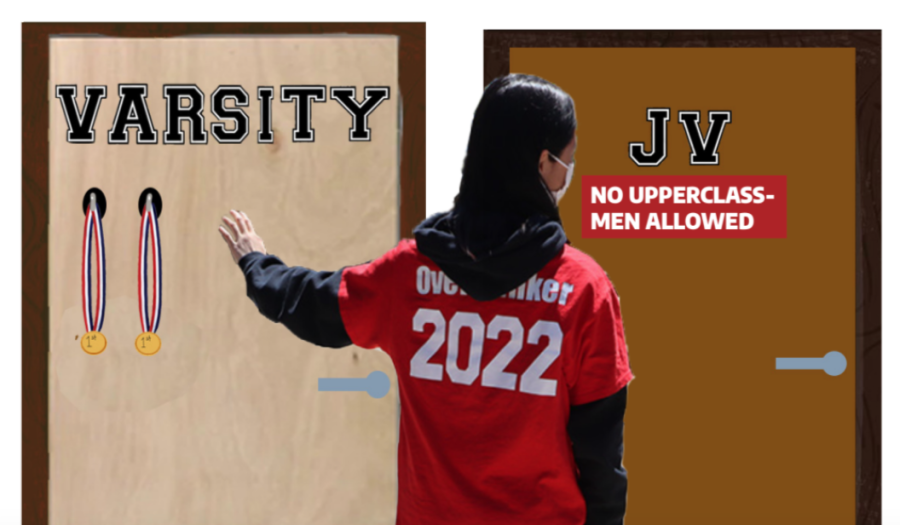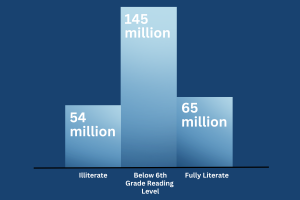The JV team should be an option for upperclassmen
May 26, 2022
High school athletes often are faced with a number of obstacles, one of which being a policy prohibiting all junior boys and all seniors from participating in JV sports. Upperclassmen who are underqualified for varsity have no choice but to drop the sport and opt for a year-long PE elective instead to obtain required PE credits. The Santa Clara Valley Athletic League should reconsider this policy in order to give upperclassmen the option to remain on JV sports teams in the case that they may prefer a less competitive environment. However, since the policy currently exists, upperclassmen should look at varsity as a privilege and an opportunity to further their athletic careers.
Varsity-qualified upperclassmen who prefer JV must choose between two options: either end their athletic career at Lynbrook or join the varsity team, regardless of preference. This league policy, which states that “JV competition shall be limited to ninth, tenth and eleventh-grade athletes” and “No seniors, male or female, may participate on the JV level,” is determined by SCVAL and applies to all schools in the league.
The only exception to this policy is cross country teams due to their high roster limitations. Cross country seniors can participate in JV during the regular season, but they still must compete with varsity for CCS tournaments.
In previous years, coaches took advantage of physically strong upperclassmen and kept them on JV to help the team advance in the league. There are also certain physical sports, like football, that wouldn’t be fair to have upperclassmen — who are usually more physically developed than underclassmen — on JV.
“It’s also a privilege to get to play for your high school,” athletic director Jennifer Griffin said. “You have to actually have the ability to play competitively. The purpose of JV is to develop you so you can play varsity. The coaches work together because we want to develop those JV players or frosh/soph players to be able to play at the varsity level and then go to playoffs.”
The nature of JV typically allows for a less competitive environment. For example, a varsity team’s score determines the rank of the JV team; if a varsity team advances, the JV team will automatically advance in their division as well. JV teams’ scores are not as important compared to varsity teams’ scores because their ranks are officially determined by varsity scores. Varsity teams climb ranks to participate in the CCS tournament with the goal of advancing into more prestigious tournaments consisting of more advanced players, thus creating a more stressful environment. The unavoidable competitive nature of varsity can be ruthless, and is a reason why upperclassmen athletes occasionally prefer JV teams.
“Varsity athletes are expected to do really well because they get a lot more attention than JV,” sophomore and varsity swimmer Bhavanashree Vishwanath said. “Since they get that attention, they also want to do well to avoid disappointing anyone.”
Athletes who aren’t ready to give up excessive hours to a sport may also favor being on JV. Oftentimes, highly skilled players are offered more playing time compared to others. Someone who was once a top player on JV may notice their playing time decrease in varsity.
Four PE credits are required for students to graduate from a high school in California. These are typically attained by two years of PE as an elective, or by playing two sports seasons excluding freshman year. As per the PE athletic agreement followed by Lynbrook and other FUHSD schools, failing to attend sports practices and games for more than three days will result in receiving no credits for that season. Upperclassmen who didn’t get PE credit for playing a sport must play on varsity for more than one year, and those underqualified for varsity must enroll in a PE elective for an entire school year or get summer credits. These less appealing options could easily be avoided if upperclassmen were eligible for JV. If upperclassmen don’t join varsity, they are forced to end their high school athletic career, and the SCVAL should reexamine its current policy to prevent athletes from having to unnecessarily give up their passions.
“This policy restricts the freedom of players,” junior and JV soccer player Meghin Bowersox said. “They’re the ones playing for the team so they should have the opportunity to choose which team they want.”




























































